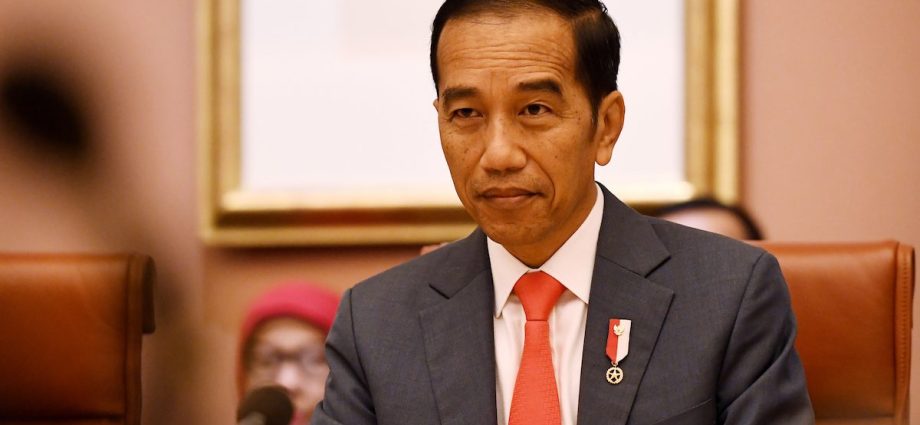
Last month, Indonesian President Joko Widodo announced a reparation program for victims of past human-rights abuses. Speaking in Aceh province, Widodo stated that this resolution “is needed to heal the nation’s pain caused by past gross human-rights violations, which have left a heavy burden for the victims.”
Reparations will come in the form of financial settlements, scholarships and cash payments for victims and their families.
The comes after Widodo expressed his “deep regret” in January for historical abuses committed on behalf of the Indonesian state. This was a result of an unprecedented investigation by the National Commission on Human Rights, a key election promise by the president.
At the time, the United Nations High Commissioner for Human Rights welcomed Widodo’s comments as a “step on the long road to justice for victims and their loved ones.”
The 12 abuses eligible for reparations occurred between 1965 and 2003, including a deadly purge of suspected communists from 1965, the shooting of protesters in 1982 and 1985, and the gunning down of students in the late 1990s.
Severe abuses were also documented during conflicts in the Aceh and Papua regions. Overall, is it estimated that more than 500,000 people were killed.
These steps are a culmination of attempts by Widodo to deal with past human-rights abuses since he was elected in 2014. The announcement offers more than just an apology and is a historic opportunity to right the wrongs of Indonesia’s dark past.
But there are problems – and detractors.
The government’s announcement lacked crucial detail. The number of people who will be eligible for reparations was not disclosed, nor any targets, and the process for applying for compensation is unclear.
The National Commission on Human Rights has estimated there are between 500,000 and 3 million victims and survivors from 1965 purges alone and that, so far, only 6,400 victims had been verified from eligible atrocities.
Rights groups express concerns
This raises questions about how serious the government is in rolling out the program and justifies fears that victims and their families will not be identified, and that only a small fraction will have access to reparations.
Human-rights groups have been critical, claiming Widodo has ignored some atrocities, such as those carried out by Indonesian security forces in Timor-Leste between 1975 and 1999, extrajudicial killings in Tanjung Priok district, North Jakarta, in 1984 and the killing of civilians in Paniai, Central Papua province, in 2014.
The same groups also argue that reparations do not go far enough and that the government’s expressions of regret are meaningless unless crimes are legally resolved in the courts and perpetrators tried and jailed.
This includes Amnesty International, which welcomed the announcement but warned it “must include accountability” and that it was crucial to “bring all those suspected of criminal responsibility for crimes under international law and human-rights violations to justice in fair trials before ordinary civilian courts – and put an end to impunity.”
A representative for Human Rights Watch reacted to the announcement by saying it was a “step forward” and “better than nothing” but that it was “not enough.”
Widodo has confirmed that while the government was focusing on a “non-judicial resolution” through reparations, this will not come at the expense of or replace any legal action taken by victims and their families.
But critics are right to worry. Indonesia has a history of not holding perpetrators to account.
A report from the Commission for Missing Persons and Victims of Violence found that police and security forces were responsible for 72 extrajudicial killings last year.
While six soldiers have been arrested for their involvement in the deaths of four Papuans in Mimika regency of the Papua region, the vast majority of Indonesian security forces continue to enjoy a large degree of impunity.
It also remains commonplace for prominent military figures associated with past atrocities to hold key positions in government.
For example, Major-General Untung Budiharto, alleged perpetrator of enforced disappearances under the Suharto regime, was appointed as commander of the Greater Jakarta Command Area last year. Prabowo Subianto, Budiharto’s commander, was made minister of defense in 2019.
If Widodo is serious about providing justice for victims of human-rights abuses, his administration needs to walk the talk.
This can be achieved by thoroughly and impartially investigating anyone suspected of past abuses, including government officials, the military and police. If there is sufficient evidence, these people should be prosecuted publicly in criminal, not military, courts.
The government should also work to ensure that the reparations program is adequately funded and has the resources and scope to identify as many past victims and their families as possible.
Finally, human-rights abuses should be prevented in the present and future. Indonesian security forces continue to commit abuses, particularly in the remote Papua region, and against journalists and human-rights activists. The government should take a no-tolerance approach to human rights and hold any perpetrators accountable.
Indonesia is taking legitimate steps to reckon with its dark history, but more needs to be done. Until this occurs, victims and their families will not get the justice they deserve.

